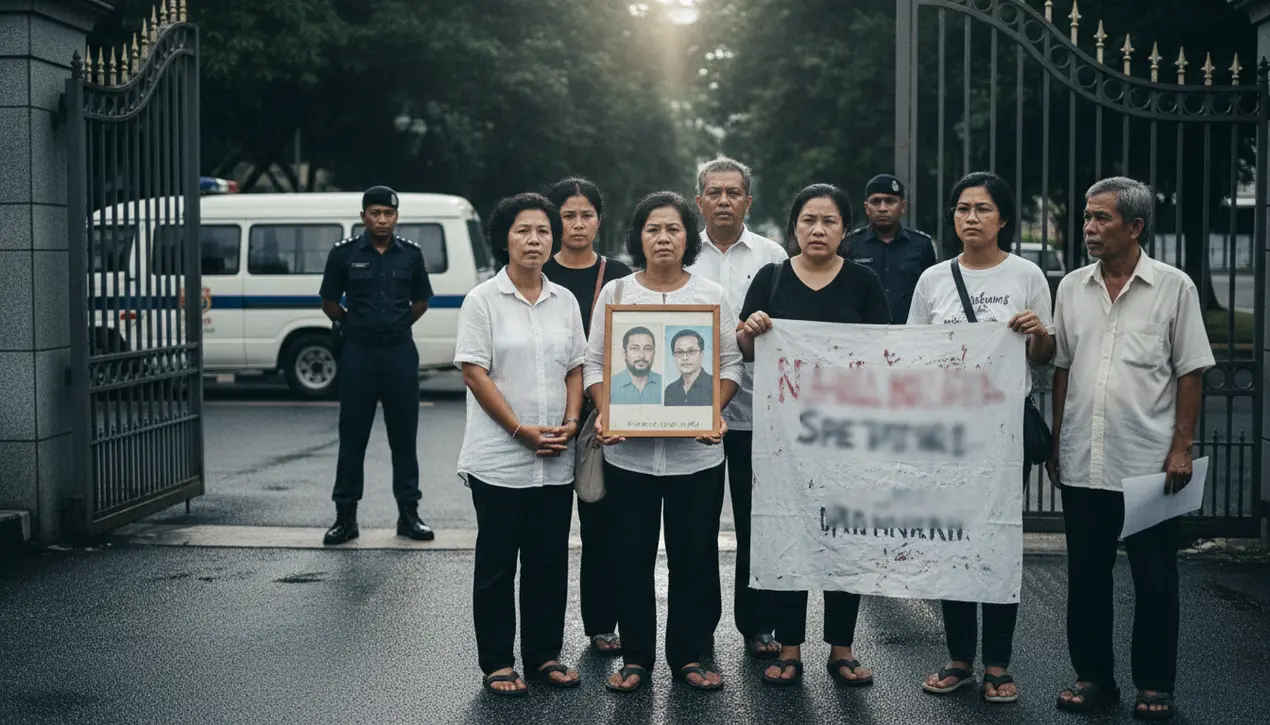
Politicscourts & investigationsLegal Precedents
Malaysia Reopens Probe Into Activists' Abductions After Court Ruling.
EM
Emma Wilson
2 hours ago7 min read1 comments
In a dramatic turn of events that has reignited a nearly decade-old wound in Malaysia's civil society, authorities have launched a fresh police investigation into the notorious forced disappearances of social activists Amri Che Mat and Pastor Joshua Hilmy, following a landmark High Court ruling that found the government and police liable for their 2016 abductions. The Kuala Lumpur High Court's decision last week was a seismic victory for the victims' families, who have waged a relentless, heart-wrenching eight-year battle for answers, piercing through a wall of official silence and obfuscation.The court, in a powerful indictment of state power, concluded that the state had failed in its duty to protect its citizens and upheld a 2019 Human Rights Commission (SUHAKAM) inquiry that had already pointed to the Special Branch, the police's intelligence unit, as the perpetrator. Yet, in a move that has left human rights advocates and the families oscillating between fragile hope and profound skepticism, the very government found responsible is simultaneously seeking to appeal the ruling, attempting to overturn this hard-won judicial accountability.This new investigation team, led by an assistant commissioner of police, is thus operating under a cloud of profound contradiction; is it a genuine attempt to finally unearth the truth and deliver justice, or a perfunctory, tactical response designed to manage public outrage while the state apparatus fights to absolve itself in a higher court? The case of Amri Che Mat, a co-founder of the charity Perlis Hope, and Pastor Joshua Hilmy, a Muslim convert to Christianity, has long been a stark symbol of the phenomenon of 'enforced disappearances' in Malaysia, a tactic feared by activists and dissidents. Their abductions followed a chillingly similar pattern, witnessed by loved ones: Amri was forced from his car by a convoy of vehicles, while Joshua and his wife Ruth were taken from their home, never to be seen again.The SUHAKAM public inquiry, a rare official inquest into such matters, heard harrowing testimony of white vans with tinted windows—a recurring motif in tales of political abductions—and of a pervasive climate of fear preventing witnesses from coming forward. For years, the official narrative was one of inertia and denial, forcing the families to become accidental activists, their private grief transformed into a public crusade for truth.This new probe arrives amidst a complex political landscape where Prime Minister Anwar Ibrahim's reformist government faces its greatest test, balancing its promises of a new 'Madani' ethos of good governance and human rights against the entrenched power of a conservative, often recalcitrant, civil service and security apparatus. The appeal against the High Court ruling sends a deeply troubling signal, suggesting that powerful forces within the state are unwilling to confront past sins.The international community, including organizations like Amnesty International, is watching closely, as the outcome will serve as a critical benchmark for the government's commitment to the rule of law. For the families, this new investigation is yet another agonizing chapter in their long vigil.While it offers a flicker of possibility, it is tempered by the brutal lessons of the past eight years. The true measure of its success will not be in press statements or the formation of committees, but in one simple, long-denied outcome: the return of Amri and Joshua, or at the very least, a full and honest accounting of their fates, and the prosecution of those who orchestrated their vanishing.
#Malaysia
#forced disappearance
#activists
#police investigation
#court ruling
#human rights
#government liability
#featured
Stay Informed. Act Smarter.
Get weekly highlights, major headlines, and expert insights — then put your knowledge to work in our live prediction markets.
Comments
Loading comments...
© 2025 Outpoll Service LTD. All rights reserved.